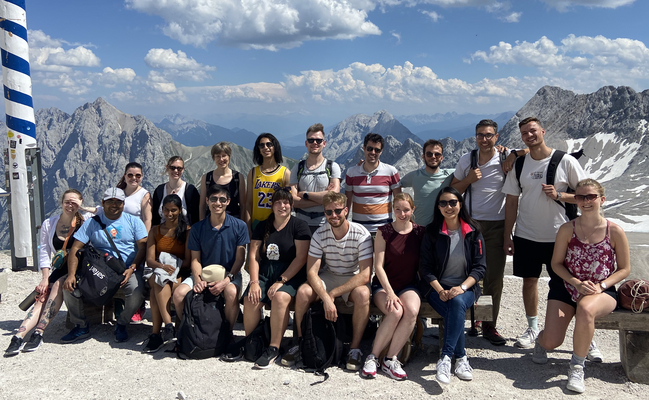Projects Offered
Helle Ulrich Helle Ulrich_actin Helle Ulrich_4R Christof Niehrs_Bioinfo Christof Niehrs_4R Christof Niehrs_Ageing SvenDanck_4R Jan Padeken_4R Andreas Wachter_4R Roopesh Anand_4R Petra Beli_4R Brian Luke_4R Dorothee Dormann_4R Thomas Hofmann_4R Maria Felicia Basilicata_4R Katja Luck Sina Wittmann Sandra Schick Stamatis Papathanasiou Ari Waisman Wolfram Ruf Uwe Wolfrum Johannes Mayer_SkinDC Johannes Mayer_Exhaust Johannes Mayer_APCGenome-wide analysis of R-loop-associated DNA damage
1 PhD project offered in the IPP winter call Molecular Mechanisms in Genome Stability & Gene Regulation
Scientific Background
We study the regulatory mechanisms that contribute to ensuring the complete and accurate duplication of a cell’s genetic information in every cell cycle, especially in the face of DNA damage. We are particularly interested in 1) the emergence, repair and replicative processing of DNA damage on a genome-wide scale, and 2) the contributions of posttranslational protein modifiers of the ubiquitin family, such as ubiquitin and SUMO, to genome maintenance and other cellular processes.
PhD Project: Genome-wide analysis of R-loop-associated DNA damage
R-loops are three-stranded nucleic acids structures resulting from an invasion of an RNA molecule into a homologous DNA duplex. They play an ambiguous role in the genome: on the one hand, they are critical modulators of gene expression. On the other hand, they pose a serious threat to genome integrity as they contribute to mutations and genome rearrangements observed in regions of high transcriptional activity. Given their abundance in the genome, it is not surprising that R-loops are subject to cellular control systems that actively regulate their formation and stability, including RNase H, various helicases, and pre-mRNA processing factors. This project aims at elucidating the mechanisms by which R-loops and R-loop resolution prevent or promote genome instability. Here we propose to map DNA lesions associated with R-loops and investigate the conditions that either enhance or suppress their emergence. Questions that we will address are: 1) What are the types and positions of R-loop-associated DNA damage? 2) Which factors promote or prevent R-loop-associated DNA damage? 3) Does R-loop fragility vary between distinct categories of R-loops differing in their regulatory purposes, their persistence, their association with other non-standard DNA structures or their sequence context? A next-generation sequencing tool recently developed in the lab, GLOE-Seq, which is capable of mapping DNA single-strand breaks and a variety of base lesions, will be employed in conjunction with genome-wide R-loop mapping tools to assess whether unscheduled, pathological, and regulatory R-loops differ in their vulnerability. The project will involve both experimental approaches and bioinformatic data analysis.
This project will be part of the RTG on R-loop Regulation in Robustness and Resilience (4R).
If you are interested in this project, please select Ulrich (Rloop) as your group preference in the IPP application platform.
Publications relevant to this project
Son K, Takhaveev V, Mor V, Yu H, Dillier E, Zilio N, Püllen NJL, Ivanov D, Ulrich HD, Sturla SJ and Schärer OD (2024) Trabectedin derails transcription-coupled nucleotide excision repair to induce DNA breaks in highly transcribed genes. Nat Commun 15:1388 Link
Zilio N and Ulrich HD (2021) Exploring the SSBreakome: genome-wide mapping of DNA single-strand breaks by next-generation sequencing. FEBS J, 288:3948-3961 Link
Sriramachandran A, Petrosino G, Méndez-Lago M, Schäfer AJ, Batista-Nascimento LS, Zilio N and Ulrich HD (2020) Genome-wide nucleotide-resolution mapping of DNA replication patterns, single-strand breaks and lesions by GLOE-Seq. Mol Cell, 78:975-985.e7 Link
